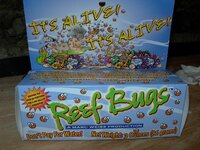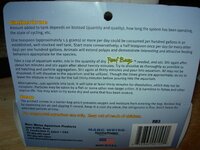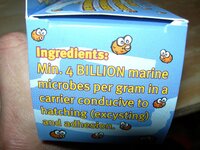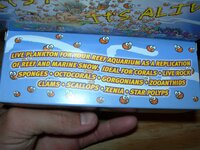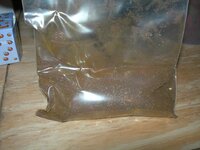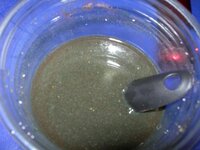Sept. 2005: newborn seahorses at Bill Al’s Aquarium Super Center, Tamarac Florida were fed Reef Bugs. They willingly ate the product in a bare, newly set up tank. We know the Bugs stimulate copepods which seahorses feed on, but there were none in this aquarium. The product was then tried on the parents who resided in an established reef tank. They ate both the product and the pods that came out to feed on the Reef Bugs.
January, 2006: Alicia Geddings of Afishyonados, an aquarium shop in Sumter, South Carolina spawned, and is rearing wolf eels on an initial and early stage diet of Reef Bugs. The story and photos can be found at: columbiamarineaquariumclub.org Go to forums, then to “Fish talk” and the wolf eel story and photos can be found to begin on January 5th. So far, two broods have been brought through the larval stage and are doing well.There is also reference to coral, polyp and copepod growth in the wolf eel thread and elsewhere in the forum .
just for proof of eel larva and young feeding on this here are the quotes from the official website of the producer. also as you can see that baby sea horses fed on reef bugs. sea horse babies are also just as hard to feed as octopus young....

